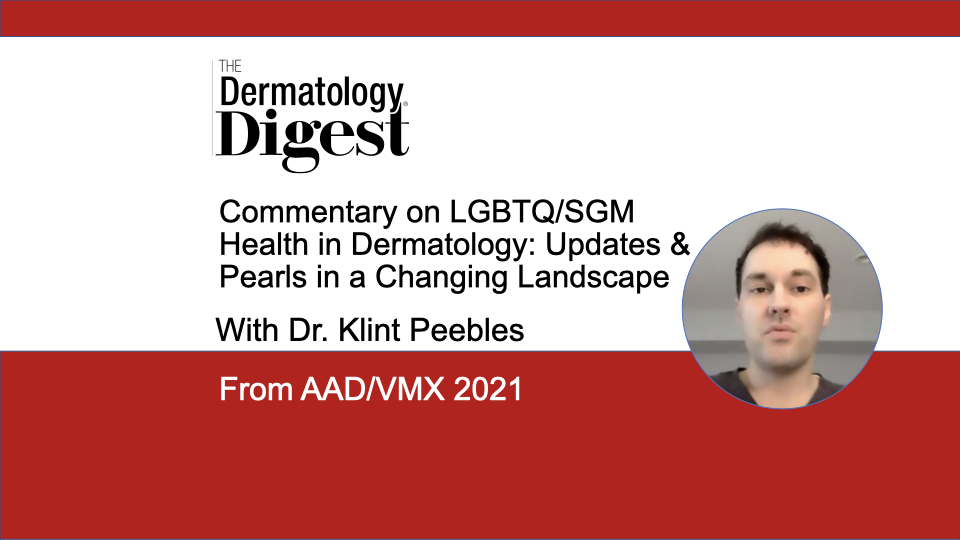Dr. Klint Peebles discusses skin cancer, acne treatment, and contraception in the Sexual and Gender Minority patient population.
Klint Peebles, MD, is a dermatologist in Washington DC and suburban Maryland, and Co-chair of the American Academy of Dermatology’s Expert Resource Group on LGBTQ/SGM Health and the LGBTQ Health Specialty Section Council of the American Medical Association.
According to Klint Peebles, MD, Co-chair of the American Academy of Dermatology’s Expert Resource Group on LGBTQ/SGM (Lesbian, Gay, Bisexual, Transgender, Queer/Sexual and Gender Minority) Health, the group’s primary task is to raise awareness of SGM health issues in dermatology, including their unique health needs and disparities.
In this exclusive video interview withThe Dermatology Digest, Dr. Peebles specifically discusses issues related to skin cancer, acne treatment, isotretinoin, and contraception in this patient population.
“We’re realizing that more individuals are being open about their sexual and gender minority status, more individuals are seeking care, and seeking affirmation not only in health care, but even more socially, culturally, and politically,” says Dr. Peebles, who presented “LGBTQ/SGM Health in Dermatology: Updates & Pearls in a Changing Landscape,” at AAD/VMX 2021. “The population, in terms of its visible numbers, is increasing and accessing care with greater frequency and demanding the excellence in care that we provide to everyone else.”
Key to providing excellence in care is understanding what those unique health needs are as well as the conditions dermatologists need to be aware of and comfortable discussing and treating, including the higher risk for skin cancer among sexual minority men and special considerations for the treatment of acne in the transgender and gender diverse population, including the need for generating population specific data for use of isotretinoin in these patients.
“We know that acne is a significant concern in transmasculine individuals or individuals who are on testosterone for gender affirmation, and acne disproportionately affects that population and that acne can be very severe and often requires treatment with isotretinoin…,” says Dr. Peebles. “But there are a lot of considerations in terms of how that medicine is prescribed and how we comply with the requirements of the FDA mandated iPLEDGE program, which currently, is very insensitive to gender diverse individuals.”
Dr. Peebles also discusses prescribing or talking about contraception when it’s needed, as well as and the importance of coordinating with the patient’s primary gender-affirming care team.


